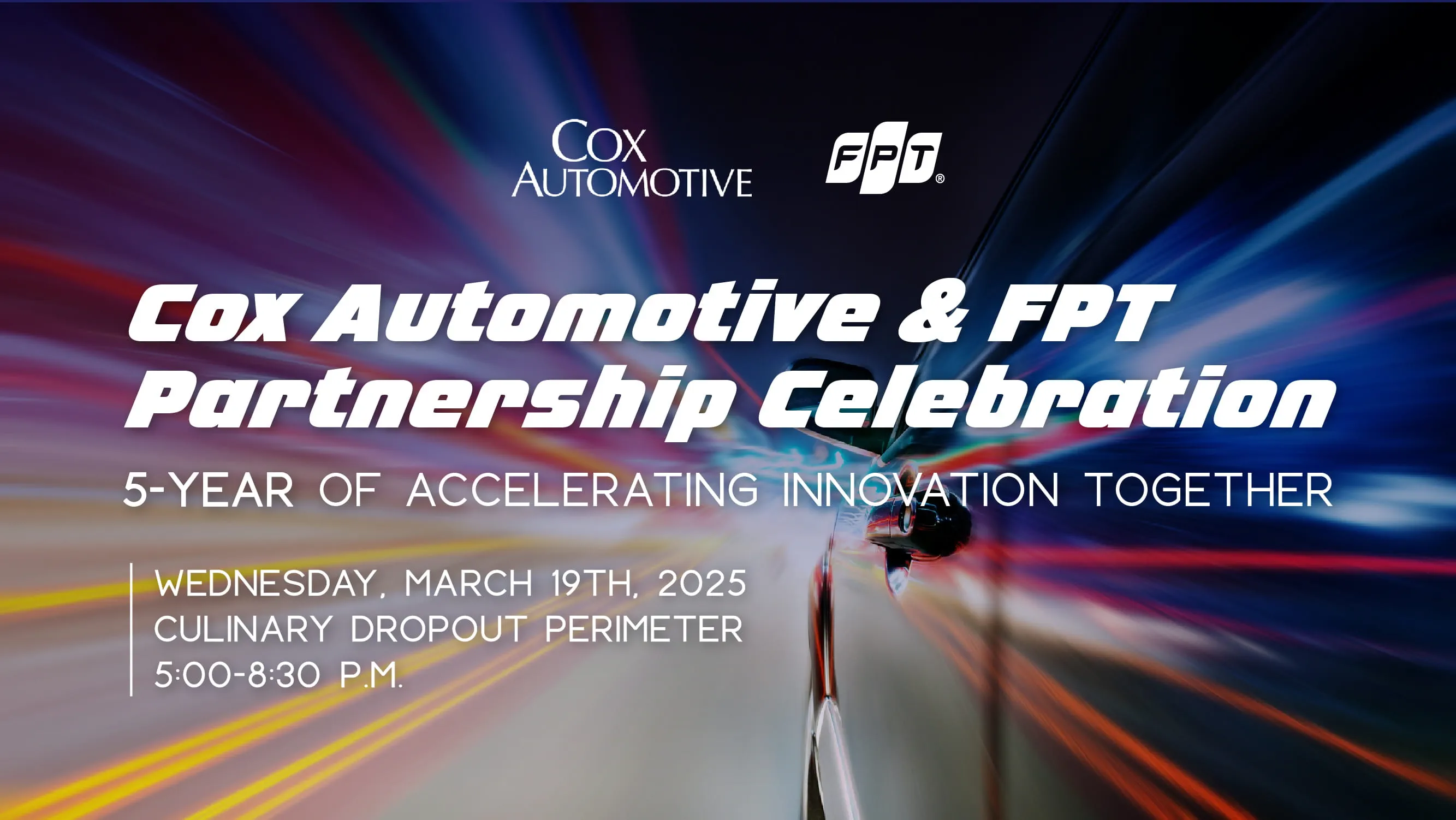

Innovative professional with business acumen, marketing chops, and a working knowledge of project management methodologies. Expertise in all aspects of successful marketing: public relations, event planning, and campaign management. Excel in interpersonal and problem-solving skills. Competent in working cross-culturally, independently and collaboratively. Experienced in budget management and communicating clearly with a range of key stakeholders. Proficient at quickly learning new systems and applications. Enjoys challenging and diverse roles. Thrives under pressure and adept at adapting to shifting priorities, demands and timelines—all with a smile.
Available For:
Travels From: Orlando, Florida, United States
| Alysha McCree | Points |
|---|---|
| Academic | 0 |
| Author | 3 |
| Influencer | 6 |
| Speaker | 0 |
| Entrepreneur | 10 |
| Total | 19 |
Points based upon Thinkers360 patent-pending algorithm.
 Senior Marketing Manager
Senior Marketing Manager
Tags: Marketing, Public Relations, Social
 AI’s Workforce Disruption: A New Era of Collaboration
AI’s Workforce Disruption: A New Era of Collaboration
Artificial intelligence (AI) is no longer an isolated innovation confined to the realm of IT. It has become an industry-wide imperative, driving transformation across businesses, industries, and functions. Yet, as AI adoption accelerates, organizations face critical challenges: balancing cost and ROI, navigating the "build vs. buy" dilemma, ensuring responsible AI deployment, and fostering trust and accountability. These factors will determine whether AI becomes a powerful enabler or a source of risk and inefficiency.
The Evolution of AI: From Standalone Projects to Business-wide Adoption
AI projects have traditionally been viewed as expensive and high-risk endeavors, requiring rigorous financial justification before implementation. However, with the rise of generative AI (GenAI) and AI agents, the perception is shifting. Businesses are moving away from treating AI as an isolated investment and instead embracing it as a necessary tool for improving productivity. The key shift has been the increasing acceptance of "quick wins"—use cases that save incremental amounts of time, ultimately leading to significant efficiency gains at scale.
Another significant trend is the changing stakeholder landscape in AI adoption. Previously dominated by IT departments, AI conversations now include broader business stakeholders. Leaders in operations, customer service, and other non-technical functions are driving AI adoption, pushing IT teams to deliver solutions at a faster pace. While this creates opportunities for business-driven innovation, it also adds pressure on IT to keep up with demand while ensuring governance and security.
Watch "Unlocking the Future - AI Agents Transforming Workflows"
Strategic Decision-Making: Build vs. Buy in AI Implementation
One of the key strategic decisions businesses must make is whether to build custom AI solutions or purchase existing ones. While off-the-shelf solutions offer faster integration and reduced costs, they may not always meet unique business requirements. Organizations that require specialized AI capabilities often find that developing proprietary models—though more resource-intensive—provides a competitive edge.
A hybrid approach is emerging as a best practice. Companies are leveraging foundational AI models like those from OpenAI and Microsoft while customizing them with proprietary data to enhance relevance. The guiding principle should be strategic differentiation: if an AI solution gives a business a unique advantage, building it may be worth the investment. Otherwise, leveraging existing platforms is often the more prudent choice.
Responsible AI: A Non-Negotiable Requirement
As AI adoption grows, so do concerns around its ethical implications. Organizations are realizing that AI systems must be designed with principles of fairness, transparency, and accountability. Major concerns include bias in AI models, data privacy risks, and potential misuse of AI for harmful purposes.
Leading organizations have established robust Responsible AI frameworks that incorporate bias detection, transparency, and accountability measures. These frameworks ensure AI models operate within ethical boundaries and comply with regulations. Businesses must integrate these principles into their AI strategy from the outset—rather than retrofitting them after deployment—to maintain trust with stakeholders.
Watch "Navigating AI - Essential Principles for Responsible Use"
Scaling AI: Balancing Internal Expertise and External Partnerships
For companies looking to scale AI adoption, a critical question arises: Should they build AI expertise in-house, or should they rely on external partners? The most effective approach is a combination of both.
Internal AI expertise provides continuity and domain-specific knowledge, ensuring that AI models align with business objectives. However, external partners bring specialized capabilities and scalability that organizations may lack. Many companies find success in retaining internal AI teams for core functions while leveraging technology partners to expand capabilities and accelerate deployment.
Managing Change: Overcoming Resistance and Ensuring AI Adoption
Even the most well-designed AI solutions can face resistance from employees. Change management plays a crucial role in AI adoption, particularly in industries where traditional processes have been entrenched for decades. Employees often fear that AI will replace their jobs, but successful implementations position AI as an augmentative tool rather than a replacement.
One effective strategy is to demonstrate AI’s ability to eliminate repetitive tasks, freeing employees to focus on higher-value work. For example, AI-powered automation in customer service can handle routine inquiries, allowing human agents to focus on complex problem-solving and customer engagement. Organizations must proactively communicate the benefits of AI, involve employees in the implementation process, and provide training to facilitate smooth adoption.
Data Protection and Governance: Safeguarding Corporate Assets
With AI systems relying heavily on data, organizations must prioritize data protection and governance. The risk of data leaks, unauthorized access, and compliance violations increases as businesses integrate AI into their workflows. Implementing AI within a secure cloud environment—where data remains within a company’s private network—reduces exposure to third-party risks.
Additionally, clear policies must be established regarding data usage in AI models. Employees must be educated on responsible AI use to prevent inadvertent data leaks. Organizations that fail to address these concerns risk damaging their reputation and facing legal repercussions.
Watch "Governance in AI - Ensuring Responsible Innovation Together"
The Future of AI: Moving Fast with Caution
As AI technology continues to evolve, organizations must balance speed and caution. Rapid experimentation is necessary to remain competitive, but it must be accompanied by governance mechanisms that ensure AI is used responsibly. Businesses must invest in AI literacy, training employees to understand the implications of AI decisions and fostering a culture of ethical AI use.
Ultimately, AI’s success hinges on trust. Whether it’s trust in data security, AI-driven decisions, or AI’s role in augmenting human capabilities, organizations that build AI responsibly will be best positioned to unlock its full potential. AI is not just a technological advancement—it’s a shift in how businesses operate, compete, and create value. Leaders who navigate this shift thoughtfully will gain a long-term advantage in the AI-driven economy.
Tags: AI, Innovation, Future of Work
 The Future of Vehicles: Navigating the Path of Software-Defined Innovation
The Future of Vehicles: Navigating the Path of Software-Defined Innovation
The automotive industry is undergoing a significant transformation. Vehicles are now defined by more than just their mechanical components. Software is becoming the driving force behind innovation. Advanced digital systems enhance performance, improve safety, and create a more connected driving experience. At FPT Americas, we are helping to shape this evolution, delivering technology that defines the next generation of mobility.
Today’s vehicles are dynamic platforms that undergo constant improvement through software updates. You can upgrade features from afar. This boosts functionality, improves efficiency, and allows smooth integration with smart systems. The shift from static machines to intelligent systems is redefining mobility. Cars now connect with their surroundings. They learn from real-time data and react quickly to changes.
This transformation was a key topic of discussion on InsideAnalysis, where industry leaders explored the opportunities and challenges presented by software-defined vehicles. While progress has been significant, the full potential of these advancements is only beginning to see the light of day.
The Critical Role of Software and Security
As vehicles become more software-driven, security and reliability must remain top priorities. A modern car is a complex system with multiple points of connectivity. It is essential to safeguard against cyber threats, ensure data privacy, and maintain system integrity.
The importance of security in automotive technology has evolved alongside innovation. Early advancements such as keyless entry introduced new conveniences while also highlighting vulnerabilities like signal cloning and hacking. With software-defined vehicles, the scale of potential risks is even greater. Automakers that include cybersecurity in their development process gain a competitive edge. This also enhances consumer trust.
Real-World Benefits of Software-Defined Vehicles
Software-defined technology offers more than just technical advancements. It has the potential to make roads safer and traffic flow more efficient. Vehicles that talk to each other and their surroundings can send alerts. They can warn drivers about hazards, road conditions, and sudden slowdowns. These features can reduce accidents, improve traffic flow, and make driving easier.
While software-defined vehicles can improve efficiency, they cannot fully eliminate congestion. As long as work and commuting patterns remain unchanged, traffic will persist. Intelligent vehicle systems can lessen its impact. They do this by improving routes, easing bottlenecks, and boosting road safety.
Data Management in the Age of Software-Defined Vehicles
The rise of software-defined vehicles generates vast amounts of data. Vehicle diagnostics, driving patterns, and sensor inputs offer key insights. These help with predictive maintenance, boost performance, and create a personalized driving experience. However, data ownership and access remain critical questions. Should data belong to the driver, the automaker, or service providers? These discussions will shape the future of data governance in the automotive industry.
At FPT Americas, data is leveraged as a tool for improvement. Predictive maintenance helps vehicles spot problems early. This way, they can avoid expensive repairs or breakdowns. This approach enhances reliability, reduces downtime, and improves overall vehicle longevity. It delivers real benefits for both drivers and fleet operators.
Looking Ahead
The shift to software-defined vehicles is not just about technological advancement. It requires collaboration across the industry. Integrating artificial intelligence, cloud computing, and advanced analytics into vehicle systems offers great opportunities. However, it also brings important responsibilities. Ensuring safety, security, and reliability must remain at the core of innovation.
At FPT Americas, we are committed to developing technology that enhances both performance and safety. The future of mobility is about more than just capability. It is about creating vehicles that adapt, improve, and deliver a better experience for everyone on the road.
Tags: AI, Mobility, Autonomous Vehicles
 Silicon Delta: The Story of Vietnam's Tech Revolution
Silicon Delta: The Story of Vietnam's Tech Revolution
"Silicon Delta: The Story of Vietnam's Tech Revolution" traces Vietnam's 50-year transformation, from post-war recovery to becoming Southeast Asia's leading digital economy. Alongside Vietnam's evolution, the documentary highlights FPT's journey from its challenging initial steps to "go global" to a multibillion-dollar corporation, paving the way for the nation's thriving tech industry of today.
This story is unfolded through three parts:
1️⃣ Early days: FPT was founded amidst Vietnam's rise of entrepreneurial spirit and economic reforms, its breakthrough deal, and the pivotal decision to expand globally.
2️⃣ Global expansion and new horizons: FPT navigated through the 1990s dot-com boom with a historic client meeting in Japan, setting the stage for the creation of FPT's education system for future innovators.
3️⃣ Resilience and innovation: Vietnam shone through unprecedented COVID-19 challenges, with FPT leading innovation in digital transformation, Al, automotive, and semiconductors, pushing forward through adversity.
Explore the resilience and daring spirit that have characterized both the nation and FPT, as well as the corporation's vision to continue accompanying Vietnam and global advancements in sectors like Al, Automotive, and Semiconductor.
Learn more about Vietnam's potential and FPT's stories at
https://fptsoftware.com/fpt-and-warner-bros-discovery-documentary
Tags: AI, Digital Transformation, Innovation
 Cox Automotive & FPT Partnership Celebration
Cox Automotive & FPT Partnership Celebration
Location: Atlanta, GA Date : March 19, 2025 - March 19, 2025 Organizer: FPT
 Unleash the Power of Artificial Intelligence
Unleash the Power of Artificial Intelligence
Location: Microsoft Montreal McGill Corporate Conference Center Date : February 05, 2025 - February 05, 2025 Organizer: FPT